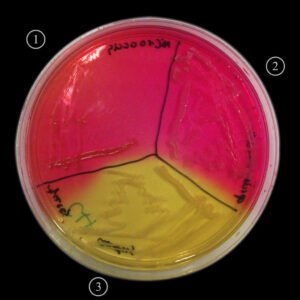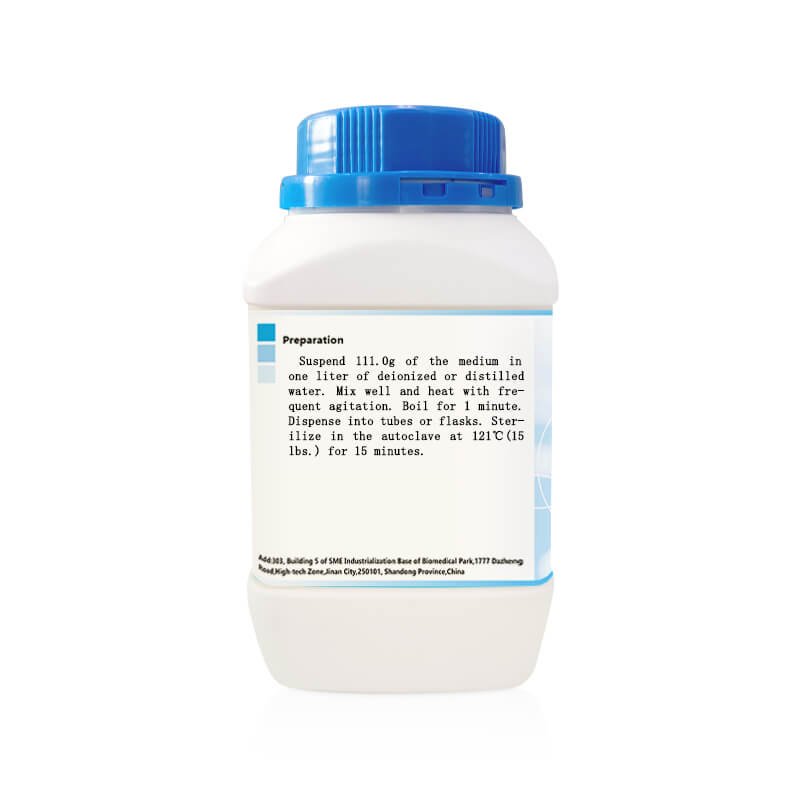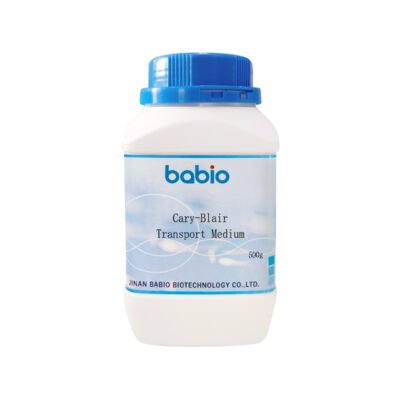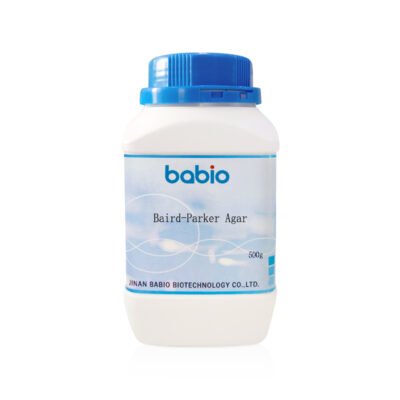Description
Mannitol Salt Agar (MSA) Overview
Mannitol Salt Agar (MSA) serves as a specialized microbiological medium that microbiologists use to selectively isolate and enumerate staphylococci from clinical and nonclinical samples. This medium plays a vital role in identifying pathogenic staphylococci, particularly Staphylococcus aureus.
Key Ingredients and Composition
Mannitol Salt Agar contains a unique blend of ingredients that promote staphylococcal growth while inhibiting other bacteria:
- Pancreatic Digest of Casein (5.0 g/l): Provides essential nitrogen sources.
- Peptic Digest of Animal Tissue (5.0 g/l): Offers vital growth factors and amino acids.
- Beef Extract (1.0 g/l): Enriches the medium with minerals and vitamins.
- D-Mannitol (10.0 g/l): Serves as a carbon source, enabling differentiation of mannitol-fermenting bacteria.
- Sodium Chloride (75.0 g/l): Creates a hypertonic environment that selectively inhibits non-staphylococcal species.
- Phenol Red (0.025 g/l): Acts as a pH indicator, signaling mannitol fermentation through a color change.
- Agar (15.0 g/l): Serves as a solidifying agent.
The final pH remains stable at 7.4±0.2 at 25°C, ensuring optimal growth conditions for staphylococci.
Preparation Instructions
To prepare Mannitol Salt Agar, follow these steps:
- Suspend 111.0 g of dehydrated medium in one liter of deionized or distilled water.
- Mix thoroughly and heat with frequent agitation until the medium fully dissolves. Boil for 1 minute.
- Dispense the solution into tubes or flasks, then sterilize in an autoclave at 121°C (15 lbs.) for 15 minutes.
Principle and Interpretation
Mannitol Salt Agar is designed specifically for isolating presumptive pathogenic staphylococci. The high sodium chloride concentration and mannitol promote staphylococcal growth while inhibiting other bacteria. When staphylococci ferment mannitol, they change the medium’s color from red to yellow, indicating the presence of pathogenic strains. This characteristic makes MSA invaluable for differentiating Staphylococcus aureus from non-pathogenic strains.
Appearance
- Dehydrated Medium: A free-flowing light red powder.
- Prepared Medium: A vibrant red, transparent gel that is visually appealing and functional for laboratory use.
Storage Conditions and Shelf Life
Store Mannitol Salt Agar tightly capped in its original container at temperatures between 5-30°C. The dehydrated medium lasts up to 3 years from the manufacturing date. Keep prepared media at 2-8°C, away from direct light, to ensure longevity and stability.
Precautions
Use this medium for laboratory purposes only. Avoid using dehydrated medium past its shelf life, if it exhibits caking, or shows any color variation.
Quality Control
Evaluate cultural characteristics after incubation at 36±1°C for 24-48 hours to confirm the medium’s efficacy for staphylococcal isolation.

A clear view of Mannitol Salt Agar, showcasing its vibrant red color, used for the selective isolation and enumeration of staphylococci in microbiological laboratories
Visit our [Food Hygiene Detection Series] for more related products.
For more information on microbial culture media, check out the [Wikipedia page on Mannitol Salt Agar]




Mueller-Hinton-BrothMHB-1-400x400.jpg)


Reviews
There are no reviews yet.